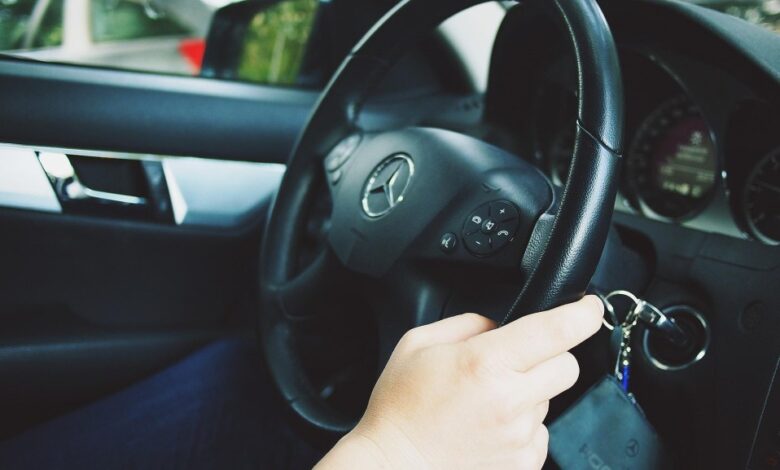Bill to reduce young drivers’ practice time stalls in NC House committee


By Jennifer Fernandez
A bill that would further shorten the practice period for young drivers stalled Wednesday in the Transportation Committee of the N.C. House.
Sponsors of House Bill 584 asked to rescind a motion that would have pushed it closer to a final vote in the House of Representatives, citing the need to address committee members’ concerns at a future meeting.
An amendment is also pending that bill sponsors said would address some of those concerns, but it was not ready in time for Wednesday’s meeting.
The amendment, proposed by Rep. Zack Hawkins (D-Durham), would reduce the practice period from nine months to six months through the end of 2025 only, instead of eliminating that time altogether. The practice period would then return to nine months — as it was previously — on Jan. 1, 2026.
Hawkins’ amendment would also nix the required log showing 60 hours of driving. Researchers have said there’s no evidence that the 60-hour minimum is effective at reducing crashes among young drivers. They say, instead, that it’s the experience of driving in many seasons and situations that increases safety outcomes.
Another element to the amendment would allow learners to go online to get their full provisional license instead of needing to make a third visit to a Division of Motor Vehicles office.
Hawkins added that he has been talking with transportation officials about allowing people to make appointments more than three months in advance. The appointments fill up quickly, so parents have to take their chances with walk-in hours, which can lead to waits of more than three hours at some offices.
Graduated license system
North Carolina’s graduated license system for young drivers has three parts.

Level 1
- Limited learner’s permit for teens who are at least 15 years old but under age 18.
- Learners must pass a written test and driver’s education and have a driving eligibility certificate, a high school diploma or its equivalent.
- Driving at this stage must always be under the supervision of a licensed driver.
Level 2
- Limited provisional license for teens who are at least 16 years old but under age 18.
- Drivers must have logged a minimum of 60 hours of driving.
- The driver must have had a learner’s permit for at least nine months before applying for this stage.
- They have to have a driving eligibility certificate, a high school diploma or its equivalent.
- Drivers are mostly on their own at this stage, but must have a supervising driver after 9 p.m. unless they are driving to or from work, or for certain volunteer activities.
Level 3
- Full provisional license for teens who are at least 16 years old but under age 18.
- Drivers must have had a limited provisional license for at least six months and submit a driving log showing a minimum of 12 hours, including at least six hours at night.
- They also must have a driving eligibility certificate, a high school diploma or its equivalent.
Practice time ‘very critical’
Several committee members expressed concerns about reducing the practice period.
Rep. Donnie Loftis (R-Gastonia), a member of the state’s Child Fatality Task Force, said data shows that crashes among young drivers dropped significantly after North Carolina began the graduated driver’s license system in 1997. It initially required a 12-month practice period before learners could advance to driving with less supervision.
Recent data from the Highway Safety Research Center at UNC Chapel Hill shows the crash rate among 16-year-old drivers has risen 13 percent since the state reduced the practice period to six months in 2021. The state bumped that period back up to nine months in 2024.
“Was that statistical evidence even a part of the conversation in how the bill was presented?” Loftis asked.
Rep. Jeffrey McNeely (R-Stony Point), a sponsor of the bill, responded: “I’m not going to tell you that the statistics were looked at incrementally or inclusively.”
He added that because of wait times at DMV offices, young drivers are in many cases effectively waiting that long anyway.
Leigh Jackson, legislative affairs director for the N.C. Department of Transportation, said the complaints about wait times at DMV offices are “not falling on deaf ears.” The department is taking steps to address concerns, she said.
However, she added, changing the time young drivers have to practice is not the answer.
“The department is pretty adamant that keeping the time period is very critical to the graduated license program,” Jackson said.
“We all know that data supports that young drivers do not look at risk like the rest of us [do] as adults, and so we want to give them the experience and time on the road to earn … that experience,” she said.
Rep. Deb Butler (D-Wilmington) suggested a study of the DMV to look for ways to improve services and reduce wait times.
“I think that’s the best way to approach this, rather than to lower our standards at the risk of losing teenagers on the highways,” she said. “That’s the better, smarter approach, I think, in this case, and I would urge everyone to vote no for this.”
The post Bill to reduce young drivers’ practice time stalls in NC House committee appeared first on North Carolina Health News.
